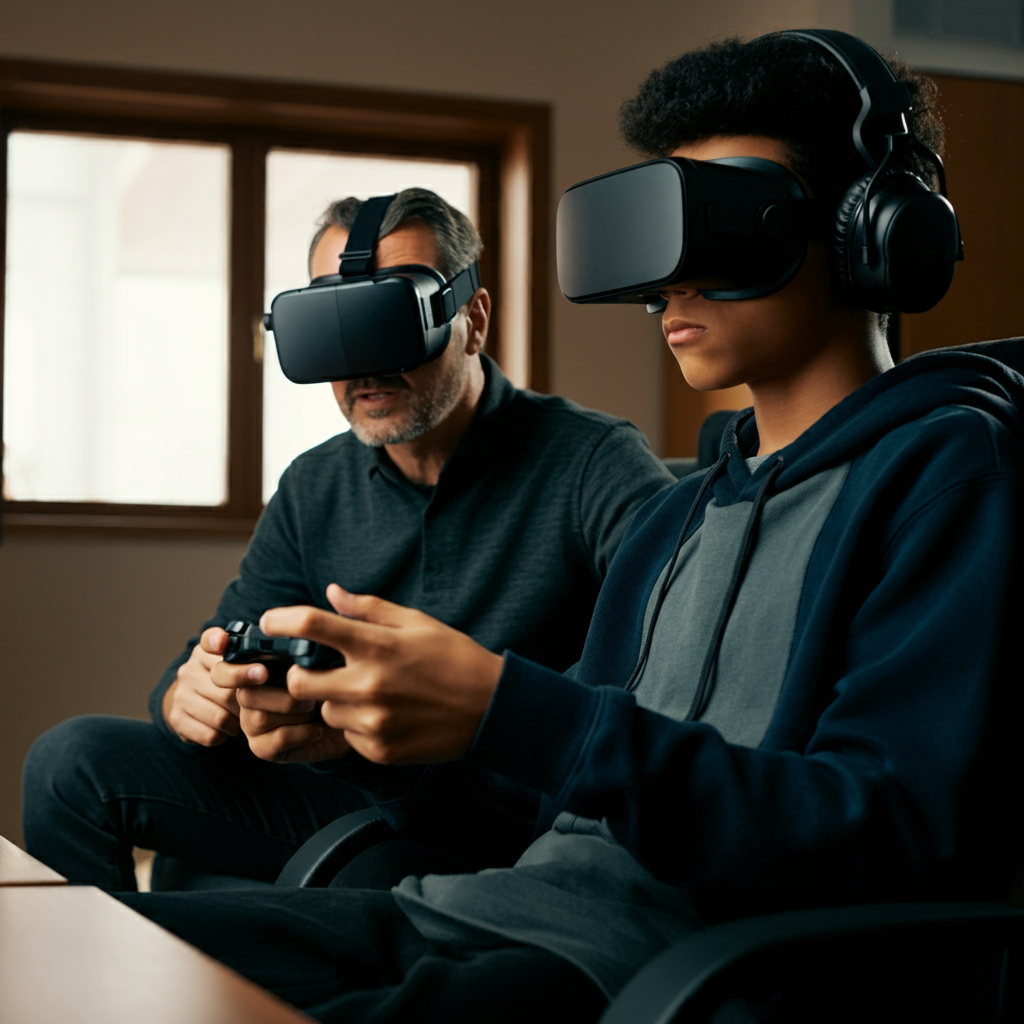Virtual reality (VR) is revolutionizing coaching and mentoring in competitive gaming by offering immersive tools and experiences that traditional methods cannot match. As VR technology advances, it is becoming an essential resource for coaches and mentors, providing innovative ways to train, analyze, and guide players in a dynamic and interactive environment.
One of the most significant benefits of VR in coaching is its ability to create realistic and customizable training scenarios. Coaches can design and simulate various in-game situations, allowing players to practice and refine their skills in a controlled yet immersive setting. This ability to recreate specific scenarios, such as high-pressure situations or complex game mechanics, helps players develop tactical responses and adapt to different challenges. VR simulations enable players to experience these scenarios repeatedly, enhancing their performance and decision-making skills in actual competitive matches.
VR also offers new ways to analyze and review gameplay. Traditional methods of reviewing game footage often involve analyzing flat-screen videos, which can limit the depth of analysis. In contrast, VR provides a three-dimensional perspective of gameplay, allowing coaches and players to view and interact with the virtual environment from multiple angles. This comprehensive analysis helps in understanding player positioning, movement, and decision-making processes more effectively. By examining gameplay in VR, coaches can identify areas for improvement and provide targeted feedback to enhance player performance.
Furthermore, VR facilitates more effective communication and collaboration between coaches and players. In a virtual environment, coaches can demonstrate strategies and tactics in real-time, guiding players through complex maneuvers and game plans. This hands-on approach enhances the learning experience, as players can see and experience the coach’s instructions in an interactive setting. The ability to visualize strategies and practice them within the VR environment fosters better understanding and execution of game plans.
Mentoring in VR also extends beyond technical skills to include mental and strategic development. VR environments can simulate stress-inducing scenarios, helping players practice managing pressure and maintaining focus during intense situations. This mental conditioning is crucial for competitive gaming, where psychological resilience plays a significant role in performance. Coaches can use VR to create scenarios that test and build mental toughness, preparing players for the challenges of high-stakes competitions.
Another advantage of VR in coaching and mentoring is its capacity for personalized training. VR systems can track player performance and behavior, providing detailed analytics that help coaches tailor training programs to individual needs. By analyzing data such as reaction times, movement patterns, and decision-making processes, coaches can design customized drills and exercises that address specific areas of improvement. This personalized approach ensures that players receive targeted guidance that aligns with their unique strengths and weaknesses.
As VR technology continues to evolve, its applications in coaching and mentoring are likely to expand further. Future advancements may introduce even more sophisticated tools for player development, such as enhanced simulation capabilities, real-time performance analytics, and advanced virtual training environments. These innovations will continue to shape how coaches and mentors approach player development, offering new ways to enhance skills, strategies, and overall performance.
In summary, VR is transforming coaching and mentoring in competitive gaming by providing immersive training tools, enhanced analysis capabilities, and improved communication. Its ability to create realistic simulations, analyze gameplay from multiple perspectives, and offer personalized training makes it a valuable resource for coaches and players alike. As VR technology advances, its role in competitive gaming coaching and mentoring will likely become even more integral, paving the way for new developments and opportunities in player development.

